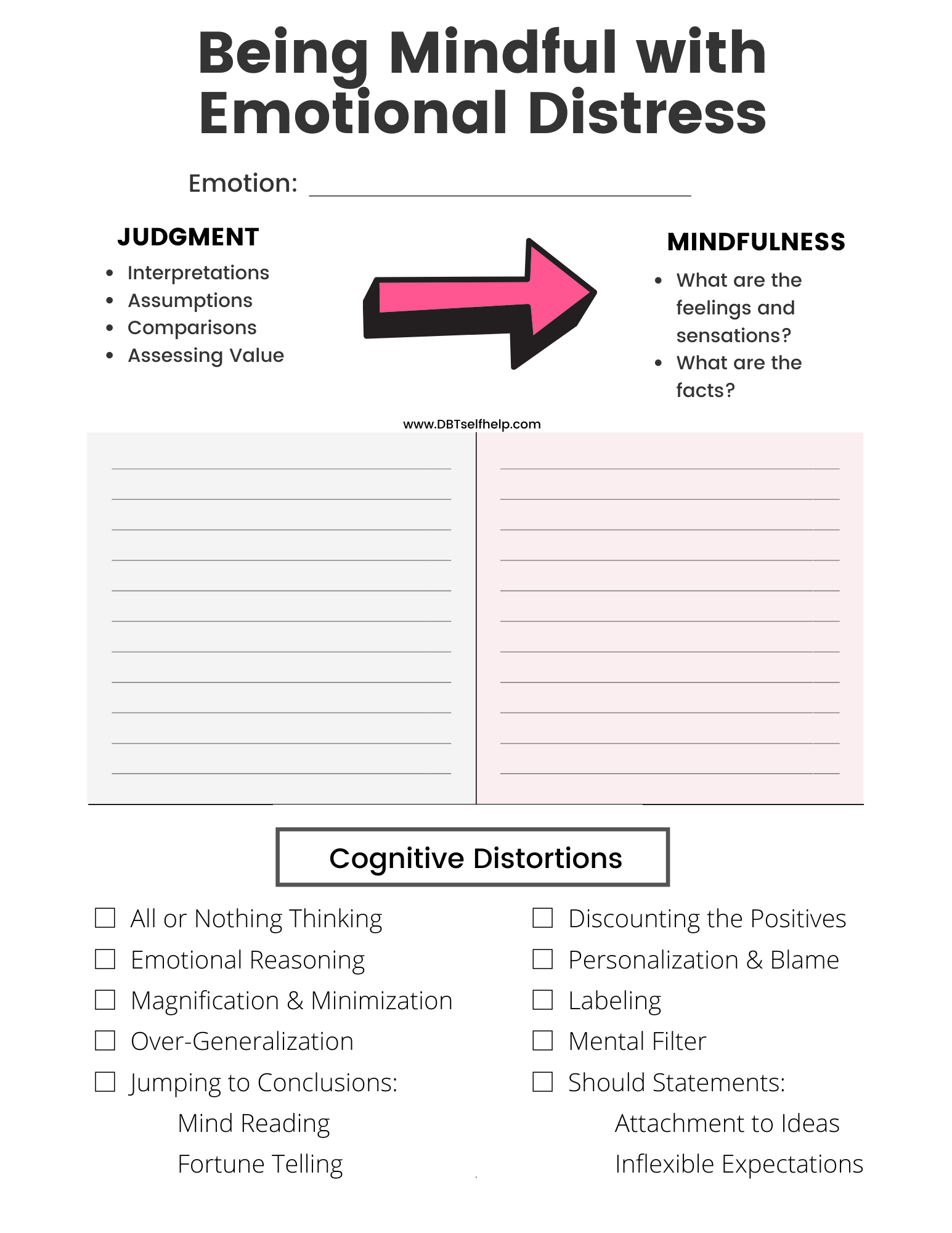
Cognitive Distortions are common errors in thinking. They are a big part of Cognitive Behavioral Therapy. It’s not unusual for those in Emotion Mind to make these cognitive errors, which is why it’s important to recognize them when they happen. That way you can fight against them. Using DBT Skills like Mindfulness can help you achieve Wise Mind where you can notice and be critical of these errors. And if these distortions are causing distress, Distress Tolerance skills can get you to a point of calm.
All or Nothing Thinking
You see things in either black or white. There are no shades of gray in between. If your performance falls short of perfection, you see yourself as a complete failure.
Example: “I have to get 100% on this test or I’m an idiot.”
Overgeneralization
If a single bad thing happens, you see it as a never-ending pattern of defeat. If one thing is terrible, everything is terrible.
Example: “I spilled my coffee this morning so this day is going to be awful.”
Mental Filter
You fixate on a single negative detail so much that it darkens your entire vision of reality.
Example: “My spouse didn’t do the dishes yesterday so our relationship is ruined.”

Disqualifying the Positive
You insist that positive experiences “don’t count” for some reason or another. By rejecting positives, you can maintain your negative beliefs.
Example: “I got Employee of the Month but I just don’t think my boss likes me.”
Jumping to Conclusions
You ignore facts in favor of your negative interpretations.
Example: “My teacher wrote me a letter of recommendation but I don’t think they like me.”
Mind Reading
You conclude someone is reacting negatively to you without checking the facts.
Example: “My friend hates me, I just know it.”
The Fortune Teller Error
You anticipate things will turn out poorly and treat your assumption as fact.
Example: “I know I’m going to get into a car accident if I drive on the highway.”
Magnification (Catastrophizing) or Minimization
You exaggerate the importance of negative things or shrink the positives until they appear tiny. Also known as “the binocular trick.”
Example: “I knit that one sweater but I don’t think I’m very crafty.”
Emotional Reasoning
You assume your negative emotions accurately reflect reality.
Example: “I’m jealous of this person so I know my partner has feelings for them.”
Personalization
You find yourself responsible for a negative event that wasn’t affected by you personally.
Example: “I didn’t catch them when they tripped so it’s my fault they sprained their ankle.”
‘Should’ Statements
You motivate yourself with ‘shoulds’ and ‘shouldn’ts’ as if you’re going to be punished if you do not abide. ‘Musts’ and ‘Oughts’ are also demons in the distortion. This leads to guilt and shame or, when applied to others, anger, frustration, and resentment.
Example: “I should have already graduated college already and be successful by now.”
Exercises
- Use this worksheet to identify your cognitive distortions and become more mindful in your distress.


